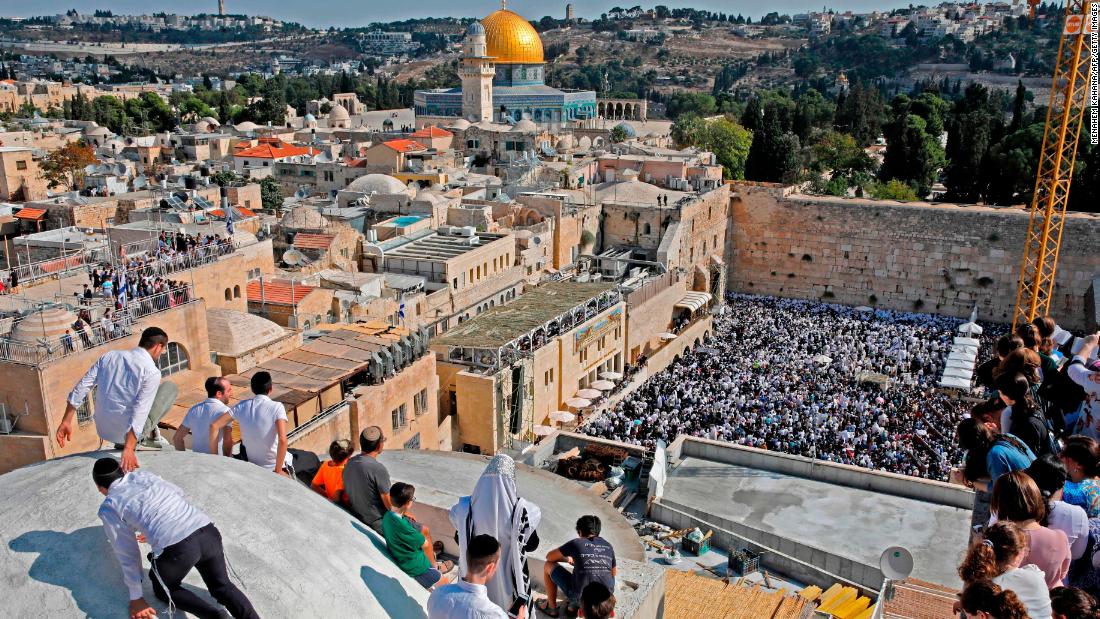
“More than 14 million people, about half of them Jews and the other half Palestinians, live under a single rule between the Jordan and the Mediterranean,” B’Tselem said in a new analysis titled, “A regime of Jewish supremacy of the Jordan to the Mediterranean: this is apartheid. “
The human rights organization says that the traditional view of Israel as a democracy operating side-by-side with temporary Israeli occupation in the areas “imposed on about five million Palestinian nationals … has become disconnected from reality”.
“Most importantly, the distinction obscures the fact that the entire area between the Mediterranean and the Jordan is organized on a single principle: to promote and strengthen the supremacy of one group – Jews – over another – Palestinians,” B Tselem said in his controversial analysis.
Years of injustice against Palestinians, culminating in laws that have enshrined discrimination, mean that “the bar to label the Israeli regime as apartheid has been met,” B’Tselem said.
The claim that Israel is an “apartheid state” has often been dismissed as anti-Semitic by right-wing Israelis and their support groups. But this argument will be more difficult to make now that Israel has been labeled this way by such a respected Israeli institution, albeit one that only enjoys minority support in its homeland.
The Israeli Embassy in London dismissed the report as “based not on reality, but on a distorted ideological vision.”
The fact that B’Tselem chose not to submit the report to the Israeli government for comment is testament to the fact that this is nothing more than a propaganda tool. Israel rejects the false claims in the so-called report … Israel is a strong and vibrant democracy that gives all citizens full rights regardless of religion, race or gender. The Arab citizens of Israel are represented in all branches of government – in the Israeli parliament, in the courts (including the Supreme Court), in the public service, and even in the diplomatic corps where they represent the State of Israel around the world. ”
Over the past decade, there have been growing concerns among Israel’s traditional allies, especially in Europe, that the continued loss of Palestinian territory to Jewish settlements in the West Bank, which are illegal under international law, was not only undermining a lengthy peace process. . but Israel’s moral standing.
Those concerns were sharply highlighted with the 2018 adoption of the “Basic Law: Israel – The Nation-State of the Jewish People” – which permanently enshrines Israel as a Jewish state in its constitution – and reinforced by promises from Israel’s politicians, notably Prime Minister. Benjamin Netanyahu, to unilaterally annex large areas of the West Bank.
Israel captured and occupied the West Bank and Gaza in 1967. The Oslo Accords between Israel and the Palestine Liberation Organization, the first of which was signed in 1993, were to lead to a “two-state solution” that would establish an independent Palestinian state. next to Israel.
Twenty-eight years later, there are no signs of that outcome.
B’Tselem argues that Israel rather entrenched discrimination against non-Jews in the areas under its control.
These include fewer rights for Palestinians living in Israel with Israeli citizenship (17% of the population). The most obvious example, says B’Tselem, is the fact that non-Jews cannot emigrate to Israel. Palestinians who marry an Israeli need official Israeli permission to move to Israel.
Jewish settlements are continuously being built in the West Bank, while building permits for Palestinians in areas officially under Israeli security control are nearly impossible and “illegal” structures are often bulldozed.
Freedom of assembly and expression is also severely restricted for Palestinians in the West Bank, the human rights organization argues, while freedom is largely unrestricted for Jews.
B’Tselem Executive Director Hagai El-Ad: “Israel is not a democracy with temporary occupation: it is one regime between the Jordan and the Mediterranean, and we have to look at the full picture and see it for what it is: “Apartheid. This sobering view of reality need not lead to despair, but quite the opposite. It is a call for change. After all, people created this regime and people can change it.”
Between 1948 and 1994, the apartheid system of racial segregation and ‘separate development’ in South Africa was intended to confine non-whites to ‘self-governing Bantustans’, deprive them of their citizenship and place them under the control of puppet regimes that resembled discontinuous inkblots. . on a map.
Established under Oslo, the Palestinian Authority controls the majority of Palestinians in the West Bank, but they are largely limited to urban areas separated by territory under Israeli control and usually not allowed to travel on roads reserved primarily for Jewish settlers and other Israelis.
B’Tselem officials said they want the international community to “take action” against Israeli policies towards Palestinians.
But they refused to question whether ‘action’ included calls for international economic and cultural sanctions of the kind imposed on apartheid South Africa before it was granted freedom with a series of steps leading up to the 1994 election of Nelson Mandela.
